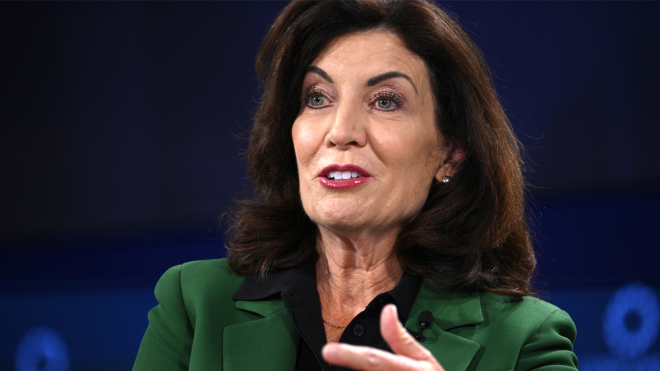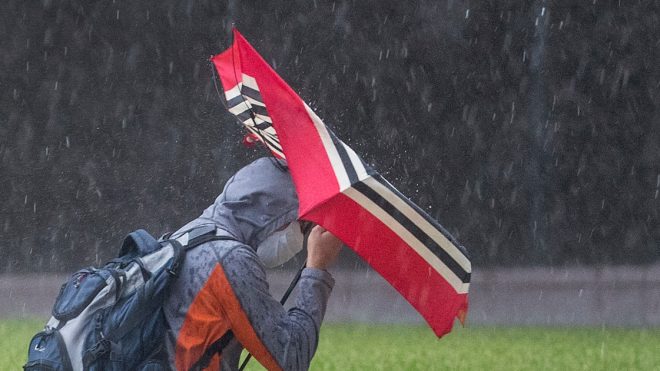People were advised to charge all of their devices and stock up on warm socks, blankets, and flashlights as Ukraine’s national energy company, Ukrenergo, warned that scheduled power outages might last up to four hours at a time.
In what Ukrainian officials and Western military analysts claim is a deliberate change in strategy by the Kremlin ahead of winter, Russian President Vladimir Putin’s forces have accelerated missile strikes and “kamikaze” drone operations targeting crucial infrastructure.
Russian attacks have harmed or destroyed infrastructure all around the country that has provided power, heat, and water throughout the conflict, from Kharkiv in the east to Lviv in the west. As technicians attempted to keep up with the repairs, officials pleaded with the public to save electricity.
The military of Moscow destroyed up to 30% of the nation’s power plants in less than a week, President Volodymyr Zelenskyy said. As the colder weather comes in, Kiev has charged that Russia is attempting to destroy the nation’s energy infrastructure since its military has suffered a long list of failures on the battlefield.
Zelenskyy stated in an video address on Wednesday that “we anticipate that Russian terror will be targeted at energy infrastructure until we establish the ability to shoot down 100% of enemy missiles and drones.”
Herman Halushchenko, Ukraine’s minister of energy, stated on Thursday that the country’s grid was under pressure and that the administration was aiming for a 20% drop in energy consumption.
“ANGER THROUGHOUT FEAR”
People in the nation’s capital, Kyiv, told NBC News that they had stocked up on candles, portable chargers, diesel generators, gas stoves, heated underwear, and electric blankets in anticipation of shortages.
Iryna Veremenko, a resident of a Kyiv flat, said she planned ahead for the potential blackouts on Thursday by charging all her electronics the night before and putting easy-to-reheat meals aside.
Veremenko, 38, claimed that she shut off all of her appliances and was relying solely on the gas supply in her apartment to cook and heat water as needed.
Veremenko said, “I feel rage more than fear.” She added that the attacks on Ukraine’s energy infrastructure demonstrate Moscow’s desperation, which gives Ukraine all the more justification to resist.
The business analyst said that she had stocked up on canned goods, kept a portable charger on hand at all times, and had a small gas burner available in case of temporary shutdowns. She also has a thick blanket, a sleeping bag made for below-freezing temperatures, and even ski gear in case the strikes on energy targets continue and the temperatures continue to drop.
Forecasts for the upcoming week indicate that temperatures in the capital of Ukraine are unlikely to exceed 50 degrees Fahrenheit.
In an interview with NBC News, Ukrainian legislator and member of the parliamentary energy committee Yuriy Kamelchuk said that even if power disruptions become routine, “we know what we are enduring it for.”
All of this, according to Kamelchuk, is being done to achieve true independence and escape from a crazy neighbor.
Yana Balatsko, who resides in a private home in the western Ukrainian city of Chernivtsi with her husband and three dogs, said by phone on Thursday that she has minimized the use of all devices and appliances in addition to heeding the government’s instructions.
Balatsko, 34, said they have a diesel generator and enough wood to keep the house warm should the blackouts persist. Additionally, she claimed, they still have candles and power banks that they had stored up on during the initial stages of the conflict.
Balatsko, an IT professional, acknowledged that the scenario was taxing even though he felt prepared.
One day I feel down, and the next I’m ready to battle,” Balatsko added. “I’m frustrated and outraged about the conflict, but we must persevere until the last finish. I’m confident that we will triumph. The limitations in place are worthwhile.
The Kremlin has claimed for months that it is solely pursuing military targets in Ukraine and is not after civilians or vital infrastructure. But ever since Putin suffered a strategic and symbolic setback during the assault on a crucial bridge in the Crimean Peninsula, which was annexed, the Russian Defense Ministry has been vocal about attacking energy targets inside Ukraine.
In state media news programs, reports on the devastation and the ensuing blackouts that impact common Ukrainians have taken center stage.
A “VERY DANGEROUS” tactic
Analysts from the West and Ukraine said it represents the Kremlin’s new strategy, which aims to demoralize both Ukraine and its supporters by escalating a humanitarian disaster.
According to Volodymyr Fesenko, the head of the Ukrainian think tank Penta and a political analyst based in Kyiv, “this is a new tactic and a very hazardous one.”
According to Fesenko, the aim is to “demoralize” the Ukrainian people, while also weakening the country’s overall defense capabilities and the resolve of its Western allies. It is hoped that long-term energy outages will cause people to flee their towns and villages in a new wave of mass migration to a continent already under strain from its own energy crisis stoked by the conflict.
In a report released this week, the British Defense Ministry added that the “primary objective” of the Kremlin’s strike campaign is expected to be extensive damage to Ukraine’s energy infrastructure.
The ministry stated in its analysis that Russia “has most likely obtained a higher willingness to hit civilian infrastructure in addition to Ukrainian military targets” as a result of fighting failures since August.
Fesenko asserted that it is evident that the majority of Ukrainians have responded with fortitude and patience, getting used to rolling blackouts and getting ready for a challenging winter.
Fesenko said that while the shortages may not weaken Ukrainians’ will to fight, they may make some people more receptive to a peace deal, even a bad one, which Ukrainian officials said they are not currently considering. “This only increases the hatred for Putin and the Russian invaders,” Fesenko said.
He predicted that “winter will reveal how people actually feel.” Making sure it’s chilly and dark is the Kremlin.













